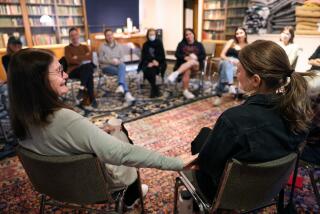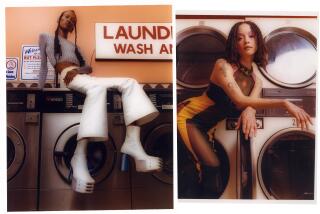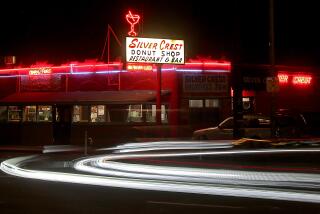The economy and us
The economic sky might be falling, but here I am at Starbucks in Koreatown fretting over the death of the cafe. Really. Last Sunday’s New York Times had a story about the decline of traditional cafes and bars in France -- there were 200,000 in 1960 and today there are only 41,500 -- and it made my heart sink. I mean, if the French are losing the art of sitting around in public doing nothing together, what hope do we Calvinistic Americans have?
You think I’m kidding. But if the economy does tank totally, all we’ve really got is each other, and I fear we don’t even have that anymore. Yes, you may have just spent a long Thanksgiving weekend with your extended family, but that’s not the kind of togetherness I’m worried about losing. Here in the U.S., we fetishize family to the detriment of our collective civic life. Our academics mourn the loss of “social capital.” They’re upset that we’re “bowling alone.” Fancy foundations give money to bolster “civic engagement.” Come on, Americans, they tell us, start interacting with each other again.
The academics and the foundations are on the right track, but there is a problem with their approach to improving civic life. They tend to want people to come together with some sort of common purpose or agenda. They are so mired in the realm of policy and politics, they don’t understand that what Americans need is more nonrational, nonpurposeful interaction with people with whom they have no natural common cause.
Not that there’s anything wrong with common cause. The campaign was a bright spot in social engagement, on both sides, but especially for the blues: huge rallies, armies of volunteers and high voter turnout.
But one grass-roots campaign isn’t enough to turn around the fact that public life is still in steep decline in the U.S., or that we’re becoming increasingly less likely to talk to -- let alone pal around with -- people who don’t share our worldview or party affiliation. That’s where cafes and bars and diners come in.
It’s been two decades since sociologist Ray Oldenburg wrote “The Great Good Place,” his homage to “third places” -- neither work nor home -- that help us get through life. “The structure of the urban, industrialized society is not conducive to good human relations,” he wrote. “Its high degree of specialization brutalizes many of the relationships people have with one another. The resulting compartmentalization ... leaves individuals ignorant of the ‘interests, ideas, habits, problems, likes and dislikes’ of those not in their own group.” Coffeehouses, corner bars and restaurants free people from “the obligations of social roles and the styles and demeanor with which those roles must be played. Here, individuals may uncork that which other situations require them to bottle up.”
I’ve been hanging out in various “third places” for years, and it has broadened my world. In Berkeley in my undergraduate days, I spent a portion of nearly every evening at the Cafe Mediterraneum on Telegraph Avenue. In the company of older eggheads and the brilliant Italian-born cafe manager, I learned how to negotiate alien views of the world. They’d tease me about my awkward social skills and embarrass me when they could, but night after night they welcomed me in their mini-universe.
When I lived in New York, I ate dinner nearly every night at Veselka, a Ukrainian coffee shop. I worked as a slave in the book publishing industry, and sometimes, a young Polish cook named Woijech would make me half a chicken cutlet sandwich and charge me accordingly. The regulars were a lot more world-weary and cynical than the idealists back in Berkeley, and the clientele fluctuated more often. At Veselka, I really learned to chat with strangers.
Here in L.A., in addition to Starbucks, one of the few true pan-ethnic gathering places in my neighborhood, I frequent the HMS Bounty, an old-fashioned watering hole on Wilshire Boulevard across from where the Ambassador Hotel once stood. On any given night, a motley assortment of characters gathers there to drink and talk, talk and drink. And believe me, we don’t always get along. Some of the strangers there have become acquaintances, and some acquaintances have become friends. What they confirm for me is that civic life isn’t about structure; we don’t have to play softball or volunteer for a cause to better engage with our world.
It’s too bad the French are losing one of their greatest cultural strengths. Their tradition of the public living room set an example for the world. When times get tough, at least we can go for coffee or a glass of wine and learn how everyone else is holding up, or just leave it all behind.
grodriguez@latimescolumnists.com
More to Read
A cure for the common opinion
Get thought-provoking perspectives with our weekly newsletter.
You may occasionally receive promotional content from the Los Angeles Times.










